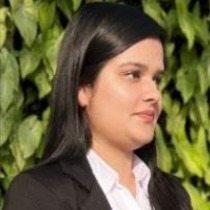
Ujjwal Tehlan
Work place: USME Department, Delhi Technological University (Formerly Delhi College of Engineering, Govt. of NCT of Delhi), New Delhi, India
E-mail: tehlan2000@gmail.com
Website: https://orcid.org/0009-0001-7425-2978
Research Interests:
Biography
Ujjwal Tehlan received her Master of Business Administration in Business Analytics from Delhi Technological University in 2024 and Bachelor of Science from the University of Delhi in 2020. Her research interests include Data Mining, Machine Learning, Business Analytics, Semantic Web, and Web Analytics.
Author Articles
New-Age Technologies to Combat Tax Evasion: Technological, Ethical, Legal, Social, and Economic (TELSE) Implications and a Scientometric Analysis
By Gaganmeet Kaur Awal Ujjwal Tehlan
DOI: https://doi.org/10.5815/ijieeb.2025.01.02, Pub. Date: 8 Feb. 2025
The sudden surge of digitalization escalates the challenges faced by traditional tax systems to detect and combat tax evasion, and it is a pivotal concern for the smooth functioning and sustainable development of any nation. The paradigm shift offered by the emergence of new-age technologies presents unprecedented opportunities to tap their potential for administering effective tax systems. In our paper, we provide a systematic scientometric analysis of existing literature to analyze four focal new-age technologies in combating tax evasion. We also propose a novel holistic framework to understand the intricacies of this multifaceted landscape of tax evasion from technological, ethical, legal, social, and economic (TELSE) perspectives. The research methodology gives a quantitative scientific mapping to analyze research publications from Web of Science and Scopus databases using Biblioshiny. A total of 117 documents were examined, spanning over the last decade (2014-2024). The research findings highlight considerable traction regarding the number of publications from the two most populated countries in the world. The analysis of the most frequent keywords yields an increasing trend towards the adoption of other new-age technologies as well and depicts different factors that affect tax evasion, which is in line with varied laws and regulations across countries. The interdisciplinary research efforts need to be aligned to tap the full potential of these technologies and to develop effective intelligent taxation systems that are fair, accountable, and explainable.
[...] Read more.Other Articles
Subscribe to receive issue release notifications and newsletters from MECS Press journals